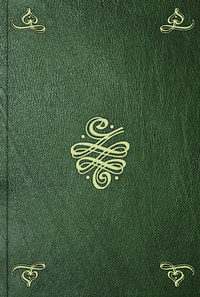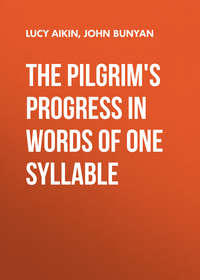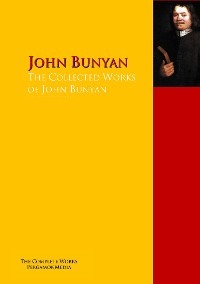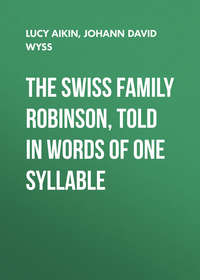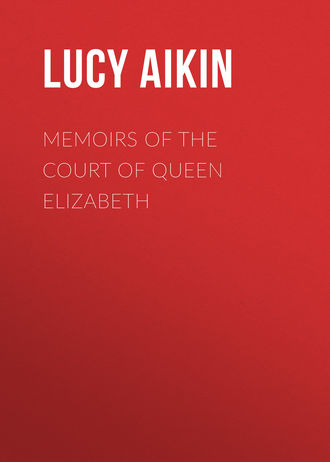 полная версия
полная версияMemoirs of the Court of Queen Elizabeth
Three deprived bishops were released from the Tower, and restored with honor to their sees. These were, Tonstal of Durham, Gardiner of Winchester, and Bonner of London. Tonstal, many of whose younger years had been spent in diplomatic missions, was distinguished in Europe by his erudition, which had gained him the friendship and correspondence of Erasmus; he was also mild, charitable, and of unblemished morals. Attached by principle to the faith of his forefathers, but loth either to incur personal hazard, or to sacrifice the almost princely emoluments of the see of Durham, he had contented himself with regularly opposing in the house of lords all the ecclesiastical innovations of Edward's reign, and as regularly giving them his concurrence when once established. It was not, therefore, professedly on a religious account that he had suffered deprivation and imprisonment, but on an obscure charge of having participated in some traitorous or rebellious design: a charge brought against him, in the opinion of most, falsely, and through the corrupt procurement of Northumberland, to whose project of erecting the bishopric of Durham into a county palatine for himself, the deprivation of Tonstal, and the abolition of the see by act of parliament, were indispensable preliminaries. This meek and amiable prelate returned to the exercise of his high functions, without a wish of revenging on the protestants, in their adversity, the painful acts of disingenuousness which their late ascendency had forced upon him. During the whole of Mary's reign, no person is recorded to have suffered for religion within the limits of his diocess. The mercy which he had shown, he afterwards most deservedly experienced. Refusing, on the accession of Elizabeth, to preserve his mitre by a repetition of compliances of which so many recent examples of conscientious suffering in men of both persuasions must have rendered him ashamed, he suffered a second deprivation; but his person was only committed to the honorable custody of archbishop Parker. By this learned and munificent prelate the acquirements and virtues of Tonstal were duly appretiated and esteemed. He found at Lambeth a retirement suited to his age, his tastes, his favorite pursuits; by the arguments of his friendly host he was brought to renounce several of the grosser corruptions of popery; and dying in the year 1560, an honorable monument was erected by the primate to his memory.
With views and sentiments how opposite did Gardiner and Bonner resume the crosier! A deep-rooted conviction of the truth and vital importance of the religious opinions which he defends, supplies to the persecutor the only apology of which his foolish and atrocious barbarity admits; and to men naturally mild and candid, we feel a consolation in allowing it in all its force;—but by no particle of such indulgence should Bonner or Gardiner be permitted to benefit. It would be credulity, not candor, to yield to either of these bad men the character of sincere, though over zealous, religionists. True it is that they had subjected themselves to the loss of their bishoprics, and to a severe imprisonment, by a refusal to give in their renunciation of certain doctrines of the Romish church; but they had previously gone much further in compliance than conscience would allow to any real catholic; and they appear to have stopped short in this career only because they perceived in the council such a determination to strip them, under one pretext or another, of all their preferments, as manifestly rendered further compliance useless. Both of them had policy enough to restrain them, under such circumstances, from degrading their characters gratuitously, and depriving themselves of the merit of having suffered for a faith which might soon become again predominant. They received their due reward in the favor of Mary, who recognised them with joy as the fit instruments of all her bloody and tyrannical designs, to which Gardiner supplied the crafty and contriving head, Bonner the vigorous and unsparing arm.
The proud wife of the protector Somerset,—who had been imprisoned, but never brought to trial, as an accomplice in her husband's plots,—was now dismissed to a safe insignificance. The marchioness of Exeter, against whom, in Henry's reign, an attainder had passed too iniquitous for even him to carry into effect, was also rescued from her long captivity, and indemnified for the loss of her property by some valuable grants from the new confiscations of the Dudleys and their adherents.
The only state prisoner to whom the door was not opened on this occasion was Geffrey Pole, that base betrayer of his brother and his friends by whose evidence lord Montacute and the marquis of Exeter had been brought to an untimely end. It is some satisfaction to know, that the commutation of death for perpetual imprisonment was all the favor which this wretch obtained from Henry; that neither Edward nor Mary broke his bonds; and that, as far as appears, his punishment ended only with his miserable existence.
Not long, however, were these dismal abodes suffered to remain unpeopled. The failure of the criminal enterprise of Northumberland first filled the Tower with the associates, or victims, of his guilt. Nearly the whole of the Dudley family were its tenants for a longer or shorter time; and it was another remarkable coincidence of their destinies, which Elizabeth in the after days of her power and glory might have pleasure in recalling to her favorite Leicester, that during the whole of her captivity in this fortress he also was included in the number of its melancholy inmates.
The places of Tonstal, Gardiner, and Bonner, were soon after supplied by the more zealous of Edward's bishops, Holgate, Coverdale, Ridley, and Hooper; and it was not long before the vehement Latimer and even the cautious Cranmer were added to their suffering brethren.
The queen made no difficulty of pardoning and receiving into favor those noblemen and others, members of the privy-council, whom a base dread of the resentment of Northumberland had driven into compliance with his measures in favor of Jane Grey; wisely considering, perhaps, that the men who had submitted to be the instruments of his violent and illegal proceedings, would feel little hesitation in lending their concurrence to hers also. On this principle, the marquis of Winchester and the earls of Arundel and Pembroke were employed and distinguished; the last of these experienced courtiers making expiation for his past errors, by causing his son, lord Herbert, to divorce the lady Catherine Grey, to whom it had so lately suited his political views to unite him.
Sir James Hales on the contrary, that conscientious and upright judge, who alone, of all the privy-counsellors and crown-lawyers, had persisted in refusing his signature to the act by which Mary was disinherited of the crown, found himself unrewarded and even discountenanced. The queen well knew, what probably the judge was not inclined to deny, that it was attachment, not to her person, but to the constitution of his country, which had prompted his resistance to that violation of the legal order of succession; and had it even been otherwise, she would have regarded all her obligations to him as effectually cancelled by his zealous adherence to the church establishment of the preceding reign. For daring to urge upon the grand juries whom he addressed in his circuit, the execution of some of Edward's laws in matter of religion, yet unrepealed, judge Hales was soon after thrown into prison. He endured with constancy the sufferings of a long and rigorous confinement, aggravated by the threats and ill-treatment of a cruel jailor. At length some persons in authority were sent to propound to him terms of release. It is suspected that they extorted from him some concessions on the point of religion; for immediately after their departure, retiring to his cell, in a fit of despair he stabbed himself with his knife in different parts of the body, and was only withheld by the sudden entrance of his servant from inflicting a mortal wound. Bishop Gardiner had the barbarity to insult over the agony or distraction of a noble spirit overthrown by persecution; he even converted his solitary act into a general reflection against protestantism, which he called "the doctrine of desperation." Some time after, Hales obtained his enlargement on payment of an arbitrary fine of six thousand pounds. But he did not with his liberty recover his peace of mind; and after struggling for a few months with an unconquerable melancholy, he sought and found its final cure in the waters of a pond in his garden.
No blood except of principals, was shed by Mary on account of the proclamation of Jane Grey; but she visited with lower degrees of punishment, secretly proportioned to the zeal which they had displayed in the reformation of religion, several of the more eminent partisans of this "meek usurper." The three tutors of king Edward, sir Anthony Cook, sir John Cheke and Dr. Cox, were sufficiently implicated in this affair to warrant their imprisonment for some time on suspicion; and all were eager, on their release, to shelter themselves from the approaching storm by flight.
Cheke, after confiscation of his estate, obtained permission to travel for a given time on the continent. Strasburgh was selected by Cook for his place of exile. The wise moderation of character by which this excellent person was distinguished, seems to have preserved him from taking any part in the angry contentions of protestant with protestant, exile with exile, by which the refugees of Strasburgh and Frankfort scandalized their brethren and afforded matter of triumph to the church of Rome. On the accession of Elizabeth he returned with alacrity to re-occupy and embellish the modest mansion of his forefathers, and "through the loopholes of retreat" to view with honest exultation the high career of public fortune run by his two illustrious sons-in-law, Nicholas Bacon and William Cecil.
The enlightened views of society taken by sir Anthony led him to extend to his daughters the noblest privileges of the other sex, those which concern the early and systematic acquisition of solid knowledge. Through his admirable instructions their minds were stored with learning, strengthened with principles, and formed to habits of reasoning and observation, which rendered them the worthy partners of great statesmen, who knew and felt their value. The fame, too, of these distinguished females has reflected back additional lustre on the character of a father, who was wont to say to them in the noble confidence of unblemished integrity, "My life is your portion, my example your inheritance."
Dr. Cox was quite another manner of man. Repairing first to Strasburgh, where the English exiles had formed themselves into a congregation using the liturgy of the church of England, he went thence to Frankfort, another city of refuge to his countrymen at this period; where the intolerance of his zeal against such as more inclined to the form of worship instituted by the Genevan reformer, embarked him in a violent quarrel with John Knox, against whom, on pretext of his having libelled the emperor, he found means to kindle the resentment of the magistrates, who compelled him to quit the city. After this disgraceful victory over a brother reformer smarting under the same scourge of persecution with himself, he returned to Strasburgh, where he more laudably employed himself in establishing a kind of English university.
His zeal for the church of England, his sufferings in the cause, and his services to learning, obtained for him from Elizabeth the bishopric of Ely; but neither party enjoyed from this appointment all the satisfaction which might have been anticipated. The courage, perhaps the self opinion, of Dr. Cox, engaged him on several occasions in opposition to the measures of the queen; and his narrow and persecuting spirit involved him in perpetual disputes and animosities, which rendered the close of a long life turbulent and unhappy, and took from his learning and gray hairs their due reverence. The rapacity of the courtiers, who obtained grant after grant of the lands belonging to his bishopric, was another fruitful source to him of vexation; and he had actually tendered the resignation of his see on very humiliating terms, when death came to his relief in the year 1581, the eighty-second of his age.
If in this and a few other instances, the polemical zeal natural to men who had sacrificed their worldly all for the sake of religion, was observed to degenerate among the refugees into personal quarrels disgraceful to themselves and injurious to their noble cause, it ought on the other hand to be observed, that some of the firmest and most affectionate friendships of the age were formed amongst these companions in adversity; and that by many who attained under Elizabeth the highest preferments and distinctions, the title of fellow-exile never ceased to be regarded as the most sacred and endearing bond of brotherhood.
Other opportunities will arise of commemorating some of the more eminent of the clergy who renounced their country during the persecutions of Mary; but respecting the laity, it may here be remarked, that with the exception of Catherine duchess-dowager of Suffolk, not a single person of quality was found in this list of conscientious sufferers; though one peer, probably the earl of Bedford, underwent imprisonment on a religious account at home. Of the higher gentry, however, there were considerable numbers who either went and established themselves in the protestant cities of Germany, or passed away the time in travelling.
Sir Francis Knowles, whose lady was niece to Anne Boleyn, took the former part, residing with his eldest son at Frankfort; Walsingham adopted the latter. With the views of a future minister of state, he visited in succession the principal courts of Europe, where he employed his diligence and sagacity in laying the foundations of that intimate knowledge of their policy and resources by which he afterwards rendered his services so important to his queen and country.
CHAPTER VII
1554 AND 1555Arrival of Wyat and his associates at the Tower.—Savage treatment of them.—Further instances of Mary's severity.—Duke of Suffolk beheaded.—Death of lady Jane Grey—of Wyat, who clears Elizabeth of all share in his designs.—Trial of Throgmorton.—Bill for the exclusion of Elizabeth thrown out.—Parliament protects her rights—is dissolved.—Rigorous confinement of Elizabeth in the Tower.—She is removed under guard of Beddingfield—carried to Richmond—offered liberty with the hand of the duke of Savoy—refuses—is carried to Ricot, thence prisoner to Woodstock.—Anecdotes of her behaviour.—Cruelty of Gardiner towards her attendants.—Verses by Harrington.—Marriage of the queen.—Alarms of the protestants.—Arrival of cardinal Pole.—Popery restored.—Persecution begun.—King Philip procures the liberation of state prisoners.—Earl of Devon travels into Italy—dies.—Obligation of Elizabeth to Philip discussed.—She is invited to court—keeps her Christmas there—returns to Woodstock—is brought again to court by Philip's intercession.—Gardiner urges her to make submissions, but in vain.—She is brought to the queen—permitted to reside without guards at one of the royal seats—finally settled at Hatfield.—Character of sir Thomas Pope.—Notice of the Harringtons.—Philip quits England.—Death of Gardiner.
Tt is now proper to return to circumstances more closely connected with the situation of Elizabeth at this eventful period of her life.
Two or three weeks before her arrival in the Tower, Wyat with some of his principal adherents had been carried thither. Towards these unhappy persons, none of those decencies of behaviour were observed which the sex and rank of Elizabeth had commanded from the ministers of her sister's severity; and Holinshed's circumstantial narrative of the circumstances attending their committal, may be cited as an instructive example of the fierce and brutal manners of the age.
"Sir Philip Denny received them at the bulwark, and as Wyat passed by, he said, 'Go, traitor, there was never such a traitor in England.' To whom sir Thomas Wyat turned and said, 'I am no traitor; I would thou shouldest well know that thou art more traitor than I; it is not the point of an honest man to call me so.' And so went forth. When he came to the Tower gate, sir Thomas Bridges lieutenant took in through the wicket first Mantell, and said; 'Ah thou traitor! what hast thou and thy company wrought?' But he, holding down his head, said nothing. Then came Thomas Knevet, whom master Chamberlain, gentleman-porter of the Tower, took in. Then came Alexander Bret, (captain of the white coats,) whom sir Thomas Pope took by the bosom, saying, 'O traitor! how couldst thou find in thy heart to work such a villainy as to take wages, and being trusted over a band of men, to fall to her enemies, returning against her in battle?' Bret answered, 'Yea, I have offended in that case.' Then came Thomas Cobham, whom sir Thomas Poins took in, and said; 'Alas, master Cobham, what wind headed you to work such treason?' And he answered, 'O sir! I was seduced.' Then came sir Thomas Wyat, whom sir Thomas Bridges took by the collar, and said; 'O thou villain! how couldst thou find in thy heart to work such detestable treason to the queen's majesty, who gave thee thy life and living once already, although thou didst before this time bear arms in the field against her?22… If it were not (saith he) but that the law must pass upon thee, I would stick thee through with my dagger.' To the which Wyat, holding his arms under his sides and looking grievously with a grim look upon the lieutenant, said, 'It is no mastery now;' and so passed on."
Other circumstances attending the suppression of this rebellion mark with equal force the stern and vindictive spirit of Mary's government, and the remaining barbarity of English customs. The inhabitants of London being for the most part protestants and well affected, as the defection of their trained bands had proved, to the cause of Wyat, it was thought expedient to admonish them of the fruits of rebellion by the gibbeting of about sixty of his followers in the most public parts of the city. Neither were the bodies suffered to be removed till the public entry of king Philip after the royal nuptials; on which festal occasion the streets were cleared of these noisome objects which had disgraced them for nearly half a year.
Some hundreds of the meaner rebels, to whom the queen was pleased to extend her mercy, were ordered to appear before her bound two-and-two together, with halters about their necks; and kneeling before her in this guise, they received her gracious pardon of all offences; but no general amnesty was ever granted.
That the rash attempt of the duke of Suffolk should have been visited upon himself by capital punishment, is neither to be wondered at nor censured; but it was a foul act of cruelty to make this the pretext for taking away the lives of a youthful pair entirely innocent of this last design, and forgiven, as it was fondly hoped, for the almost involuntary part which they had taken in a former and more criminal enterprise. But religious bigotry and political jealousy, each perhaps sufficient for the effect, combined in this instance to urge on the relentless temper of Mary; and the lady Jane Grey and Guildford Dudley her husband were ordered to prepare for the execution of the sentence which had remained suspended over them.
Every thinking mind must have been shocked at the vengeance taken on Guildford Dudley,—a youth too insignificant, it might be thought, to call forth the animadversion of the most apprehensive government, and guilty of nothing but having accepted, in obedience to his father's pleasure, the hand of Jane Grey. But the fate of this distinguished lady herself was calculated to awaken stronger feelings. The fortitude, the piety, the genuine humility and contrition evinced by her in the last scene of an unsullied life, furnished the best evidence of her guiltlessness even of a wish to resume the sceptre which paternal authority had once forced on her reluctant grasp; and few could witness the piteous spectacle of her violent and untimely end, without a thrill of indignant horror, and secret imprecations against the barbarity of her unnatural kinswoman.
The earl of Devonshire was still detained in the Tower on Wyat's information, as was pretended, and on other indications of guilt, all of which were proved in the end equally fallacious: and at the time of Elizabeth's removal hither this state-prison was thronged with captives of minor importance implicated in the designs of Wyat. These were assiduously plied on one hand with offers of liberty and reward, and subjected on the other to the most rigorous treatment, the closest interrogatories, and one of them even to the rack, in the hope of eliciting from them some evidence which might reconcile to Mary's conscience, or color to the nation, the death or perpetual imprisonment of a sister whom she feared and hated.
To have brought her to criminate herself would have been better still; and no pains were spared for this purpose. A few days after her committal, Gardiner and other privy-councillors came to examine her respecting the conversation which she had held with sir James Croft touching her removal to Donnington Castle. She said, after some recollection, that she had indeed such a place, but that she never occupied it in her life, and she did not remember that any one had moved her so to do. Then, "to enforce the matter," they brought forth sir James Croft, and Gardiner demanded what she had to say to that man? She answered that she had little to say to him or to the rest that were in the Tower. "But, my lords," said she, "you do examine every mean prisoner of me, wherein methinks you do me great injury. If they have done evil and offended the queen's majesty, let them answer to it accordingly. I beseech you, my lords, join not me in this sort with any of these offenders. And concerning my going to Donnington Castle, I do remember that master Hobby and mine officers and you sir James Croft had such talk;—but what is that to the purpose, my lords, but that I may go to mine own houses at all times?" The earl of Arundel kneeling down said, "Your grace sayeth true, and certainly we are very sorry that we have troubled you about so vain matter." She then said, "My lords, you do sift me very narrowly; but I am well assured you shall not do more to me than God hath appointed, and so God forgive you all."
Before their departure sir James Croft kneeled down before her, declaring that he was sorry to see the day in which he should be brought as a witness against her grace. But he added, that he had been "marvellously tossed and examined touching her grace;" and ended by protesting his innocence of the crime laid to his charge23.
Wyat was at length, on April 11th, brought to his death; when he confounded all the hopes and expectations of Elizabeth's enemies, by strenuously and publicly asserting her entire innocence of any participation in his designs.
Sir Nicholas Throgmorton was brought to the bar immediately afterwards. His trial at length, as it has come down to us in Holinshed's Chronicle, is one of the most interesting documents of that nature extant. He was esteemed "a deep conspirator, whose post was thought to be at London as a factor, to give intelligence as well to them in the West, as to Wyat and the rest in Kent. It was believed that he gave notice to Wyat to come forward with his power, and that the Londoners would be ready to take his part. And that he sent a post to sir Peter Carew also, to advance with as much speed as might be, and to bring his forces with him.
"He was said moreover to be the man that excited the earl of Devon to go down into the West, and that sir James Croft and he had many times consulted about the whole matter24."
To these political offences, sir Nicholas added religious principles still more heinous in the eyes of Mary. He, with two other gentlemen of his family, had been of the number of those who attended to the stake that noble martyr Anne Askew, burned for heresy in the latter end of Henry's reign; when they were bid to take care of their lives, for they were all marked men. Since the accession of Mary also he had "bemoaned to his friend sir Edward Warner, late lieutenant of the Tower, his own estate and the tyranny of the times, extending upon divers honest persons for religion, and wished it were lawful for all of each re ligion to live safely according to their conscience. For the law ex-officio he said would be intolerable, and the clergy discipline now might rather be resembled to the Turkish tyranny than the teaching of the Christian religion. Which words he was not afraid at his trial openly to acknowledge that he had said to the said Warner25."


